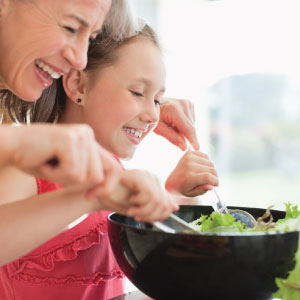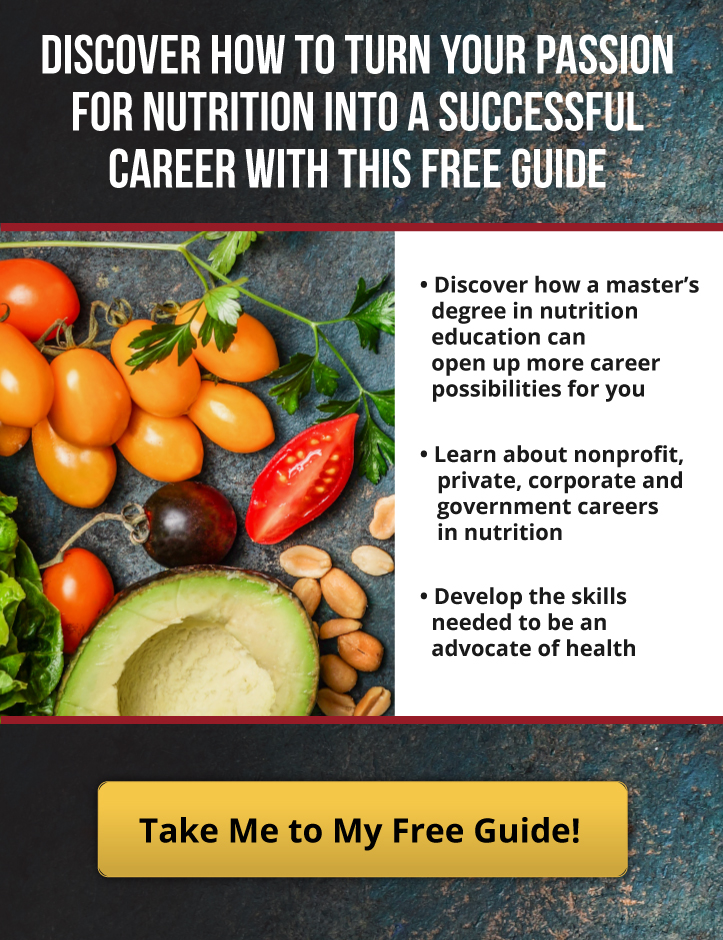If you have a passion for nutrition and wellness, your passion can be put to good use combating the childhood obesity epidemic in the United States. According to the Centers for Disease Control and Prevention and the National Centers for Health Statistics, obesity rates have more than doubled in children and quadrupled in adolescents in the past 30 years. Children and adolescents who are obese are more likely to be obese as adults, and are therefore at a greater risk for serious long-term health problems such as heart disease, type 2 diabetes, and osteoarthritis.
The childhood obesity problem in America is multifaceted. There are a wide range of factors that influence the diet and physical activity patterns of children and adolescents, and early intervention is key in order to help them lead healthy and happy lives. “Everyone is part of the team in preventing childhood obesity,” said Charlotte Pratt, Ph.D., M.S., R.D., F.A.H.A., Program Director at the Division of Cardiovascular Sciences at the National Heart, Lung, and Blood Institute (NHLBI), “To effectively prevent and treat obesity we must reach children where they live, learn, and play.”
If you want to play a role in addressing childhood obesity or share your passion for nutrition and wellness with children, here are some fun and effective ways you can teach nutrition to kids.
Utilize Fun Nutrition Education Resources
 Ever heard of Nutrition Sudoku? How about a game called Smash Your Food? Or the sing-a-long kids’ songs Alive with Five Groups and Do Your Body Right? The United States Department of Agriculture offers games, videos, and songs about good food choices that kids will love. Kids can take the pledge to become a MyPlate Champion, focusing on goals like “try whole grains” or “slow down on sweets”. They also can personalize and print their own MyPlate Champion certificate, which means mom or dad can stick it on the refrigerator for a fun reminder. There are also fun apps you can incorporate in your nutrition education programs to help teach kids how to make smart food choices on their own, like this one from the CDC that provides engaging nutrition education materials for kids so they can learn to make healthy lifestyle choices on their own.
Ever heard of Nutrition Sudoku? How about a game called Smash Your Food? Or the sing-a-long kids’ songs Alive with Five Groups and Do Your Body Right? The United States Department of Agriculture offers games, videos, and songs about good food choices that kids will love. Kids can take the pledge to become a MyPlate Champion, focusing on goals like “try whole grains” or “slow down on sweets”. They also can personalize and print their own MyPlate Champion certificate, which means mom or dad can stick it on the refrigerator for a fun reminder. There are also fun apps you can incorporate in your nutrition education programs to help teach kids how to make smart food choices on their own, like this one from the CDC that provides engaging nutrition education materials for kids so they can learn to make healthy lifestyle choices on their own.
For more great age-appropriate nutrition education materials for kids, check out the SuperKids Nutrition website. The site was created by Registered Dietician and Certified Diabetes Educator Melissa Halas-Liang, who has a master’s degree in Nutrition Education.
Start a Community Garden
Starting a garden is a wonderful activity that can give children up close and hands-on experience with the entire cycle of growing food: from planting and sprouting to harvesting and eating. Toddlers can help press seeds into the ground and water the sprouts, while older kids can learn to tell weeds from good plants, help bring in the harvest, and help prepare the food. Gardening is a particularly enriching and joyful activity for young children since it already involves everything they love to do outside, like getting dirty, scooping dirt, and pulling plants. It may take some effort to convince a school to start a community garden for its students, but that would be part of your job as a nutrition educator and wellness advocate.
Get Hands On About Nutrition Education
Teaching kids how to make healthy food is a lot easier (and a lot more fun) if you incorporate hands-on activities that involve drawing, cutting, and pasting. For example, you might give children magazines that have many pictures of healthy foods and have them cut out the ones that look the most delicious. Or using the same magazines, have kids cut out pictures of foods and paste them inside their own food plate to help them grasp the meaning and importance of each food group. There are a number of nutrition education tools out there for children that focus on colors, characters, and bright illustrations. Hands-on activities like these better reinforce the nutrition ideas you are sharing with children so they can develop a real understanding of healthy eating early on in life.
If you want to help children make healthier food choices, the online Master of Science in Nutrition Education from American University can give you the knowledge and skills to turn your passion into a rewarding career. You will learn how to design and implement nutrition education programs for children, adolescents, and adults in a wide range of settings, which means you can align your career with your personal and professional interests.
Request more information on the online Master of Science in Nutrition Education or call 855- 725-7614 to speak with an admissions adviser today.




